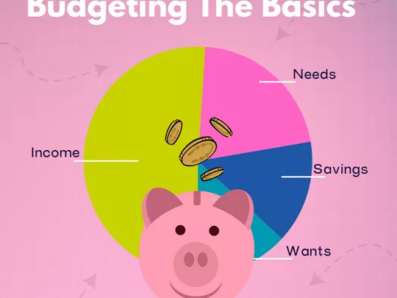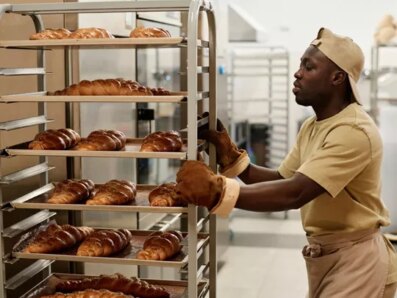

What is further education?
After finishing secondary school, most students your age decide to continue their education instead of heading straight into a job. Further education lets you gain formal qualifications that can help you succeed in your future career, while giving you the opportunity to make new friendships and grow as a person. There are different types of further education, from academic to more practical courses.
Let’s take a closer look…
A-Levels
A-Levels (Advanced Level) are subject-based qualifications that follow after GCSEs, available to young people aged 16 and above. These qualifications offer a great opportunity to study an existing GCSE subject in greater depth or the chance to study a brand new topic such as economics or psychology.
Most schools and colleges will expect you to have gained at least five 9–4 (A*–C) grades in your GCSEs. However, other pathways are available including BTEC and other vocational courses.
If you’re thinking of going to university, most require specific A-levels or combinations of at least three A-levels as their requirement. You can take up to five A-levels, but three is must more manageable and the typical requirement for the majority of universities.
BTECs
If you’re looking to go down a less academic and more practical, hands-on route to learning then BTEC diplomas are great for helping you learn more about a particular industry.
BTEC stands for Business and Technology Education Council, and unlike A-levels, they offer more practical, vocational opportunities across a huge range of different sectors; such as construction, health and social care, hospitality, and travel and tourism.
Although they’re often studied by full-time students, these specialist work-related qualifications can also provide career development opportunities for if you are already in work.
So if you are put off by continued classroom-based and theory-focused learning and instead want the real workplace, hands-on experience, then BTECs may be a better option for you.
It is also worth noting that universities have adapted their entry requirements to accept BTEC qualifications. So they can still allow you to go down the university route.
Apprenticeships
You do not have to stay in School when you turn 16. Instead, you may decide to apply for an Apprenticeship or on-the-job training. These are schemes where you learn on the job. If you are enrolled on an Apprenticeship, you will be paid for the work you do, as well as gaining important skills for work.
Apprenticeships last a minimum of a year, and can last up to four years depending on the nature of the apprenticeship.
How to prepare for further education
You may already be dead set on what you want to study, or you might feel a bit overwhelmed having to think about what you want to do with your life. Whichever way you’re feeling, you’ll want to make sure you make the best choice for you.
Here are some things you can do to help you decide and prepare for your further education.
Think about whether you want to go to university
If you do, this will influence the type of further education you should go for. Universities require UCAS points to gain entry, with each course and university requiring a different number of points. You get UCAS points through completing A Levels. The higher the grade you get in your A Levels, the more UCAS points you receive, allowing you to enter a more prestigious university or study a more technically advanced degree.
You can get into university without completing A Levels, but you’ll need to do an Access to Higher Education course. These courses are very subject specific, such as Access to HE Diploma in Health, while A Levels allow you to study a broader range of subjects.
Play to your strengths
Do you have a creative flair and a love of writing, or do have a keen analytical eye and aptitude for numbers? Maybe you’re much more hands-on and practical and are eager to get earning straight away. Our strengths all lie in different areas, and it’s important you consider what you are good at when considering further education.
Do something you enjoy
If you haven’t enjoyed a subject at GCSE then this will only intensify if you choose to continue to study this subject. Make sure you follow your passions and choose a pathway that excites you. There is nothing worse than lacking enthusiasm in a subject area, and after all the success of your learning is determined by how much you put into it.
Think about where you see a career in
Enjoyment and aptitude in what you choose to study are important, but you must still think long term and how the subjects you choose will support your career aspirations in the future. Perhaps your dream career is in medicine or law, or perhaps you want to become an engineer or teacher.
Careers in medicine and law take time to build and need a strong academic foundation through a more traditional university route, so it’s important to research in full the qualifications needed for the profession you have set your sights on. Alternatively, there is a wealth of interesting vocational pathways that don’t require years of further study.
We know it’s not a linear path to the career you may end up in (more like lots of zig-zagging!), and it’s completely normal not to know what job you want to do when you’re older. Don’t worry, qualifications bring a whole host of different transferable skills which will stand you in good stead in whatever career you decide on.
You may also like…
Handbooks & Guides?
Are handy handbooks are designed with you in mind, full of helpful information for both you and your foster family.
Independents
Are you about to be independent or have you already left? Find support and information here and remember to stay in touch.
Have your say
We are here for you, have your say on topics you want to read, give us your feedback or contribute to your foster parent’s review.
Kids of Carers
We offer help and support to birth children and young people whose parents are foster carers.





